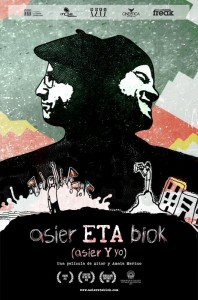 I’m just back from a great conference at the University of La Laguna, on Vulnerability, Justice and Global Ethics. I have been off the bioethics frontline for a while and conferences help us all touching base again, recovering an awareness of what is going on in the field, what the main challenges are and how can they be tackled. I am really grateful to the organising committee, as well as to all the colleagues and friends whom I met in these two days, for doing all the hard work necessary for this conference to happen. This conference was particularly hospitable and well-run. Continue reading
I’m just back from a great conference at the University of La Laguna, on Vulnerability, Justice and Global Ethics. I have been off the bioethics frontline for a while and conferences help us all touching base again, recovering an awareness of what is going on in the field, what the main challenges are and how can they be tackled. I am really grateful to the organising committee, as well as to all the colleagues and friends whom I met in these two days, for doing all the hard work necessary for this conference to happen. This conference was particularly hospitable and well-run. Continue reading
Tag Archives: Bioethics&Film
Cine e igualdad
Aprendemos con imágenes e historias. ¿Cómo nos educan las peliculas que vemos para entender, respetar y ampliar la igualdad en derechos humanos? ¿Cómo se hace una película? ¿Cuáles son los primeros pasos? ¿La universidad puede ayudar? ¿Cómo se organiza un Festival de Cine? ¿Cómo se gestionan estas actividades culturales? ¿Hay más dificultades si eres mujer? Lo discutiremos desde la práctica compartiendo la experiencia de las invitadas a nuestro seminario. (Descarga el programa.) Continue reading
The Butterfly and the Diving Bell
We need narratives to make sense out of life, even when apparently there remains very little to live. Illness is often experienced as a disturbing break of the link between past, present and future, and therefore one of the ends of healthcare might be the recovery of some integrated experience by means of narrative. (Of course, narratives can be deceptive, but that does not invalidate the former.) I hope tomorrow we will see that when watching together The Butterfly and the Diving Bell; in addition, we will have the privilege of having Ezequiel Di Paolo watch the film with us. Then he will be sharing with us his research on Locked-in syndrome, published here:
Also, for a commentary of the film from a physician’s point of view, go here.
Why Asier, why?
Ok, so our international course on bioethics and film is here at last. I am very excited because it is a wonderful opportunity to test ideas in a multicultural and multidisciplinary environment, and this kind of group is usually very focused and enthusiastic about what we will be doing together in these two weeks: watch films, discuss them together, read articles, write papers, and explore new places.
 The main goal is to understand a set of compelling bioethical issues by deliberating upon the common ground of stories provided by the movies, and to do it in a comparative way, paying attention at how cultural differences shape our ethical expectations and reactions. That’s one of the reasons why we selected Asier ETA biok (Asier and I), which at first sight is clearly not a film about healthcare. But it is a film about ethics, about the moral dilemmas that many people in the Basque Country have experienced in the last 50 years. Continue reading
The main goal is to understand a set of compelling bioethical issues by deliberating upon the common ground of stories provided by the movies, and to do it in a comparative way, paying attention at how cultural differences shape our ethical expectations and reactions. That’s one of the reasons why we selected Asier ETA biok (Asier and I), which at first sight is clearly not a film about healthcare. But it is a film about ethics, about the moral dilemmas that many people in the Basque Country have experienced in the last 50 years. Continue reading

